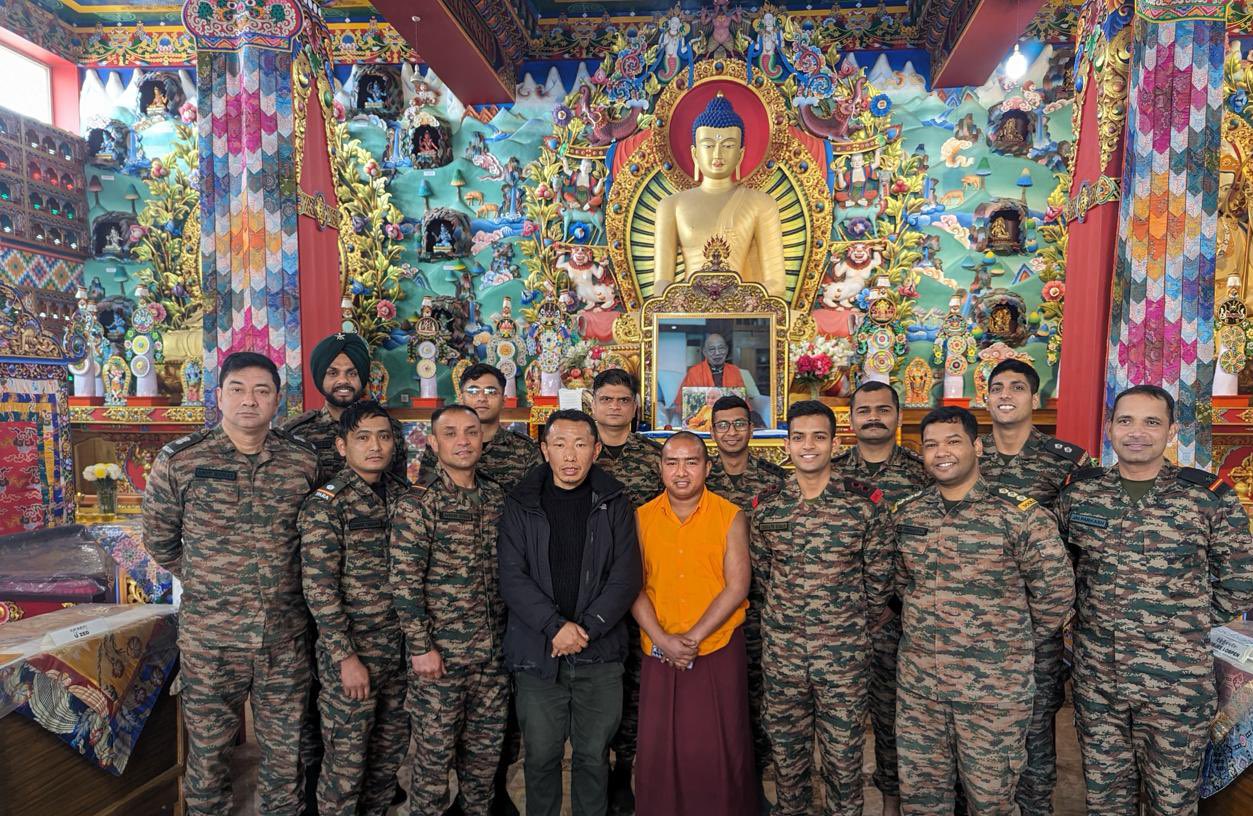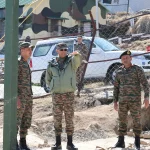In a significant endeavor to deepen cultural understanding and foster greater awareness of Tibetan history, language, and heritage, Trishakti Corps has successfully conducted the Sixth Tibetology Cadre at Gangtok.
This initiative, aimed at empowering officers with comprehensive knowledge of Tibetan culture and topography, underscores the Indian Army’s commitment to promoting cultural exchange and strengthening bonds with neighboring regions.
The Tibetology Cadre, organized by Trishakti Corps in collaboration with Sikkim University and the Namgyal Institute of Tibetology, represents a pivotal step towards enhancing cross-cultural understanding and appreciation among military personnel.
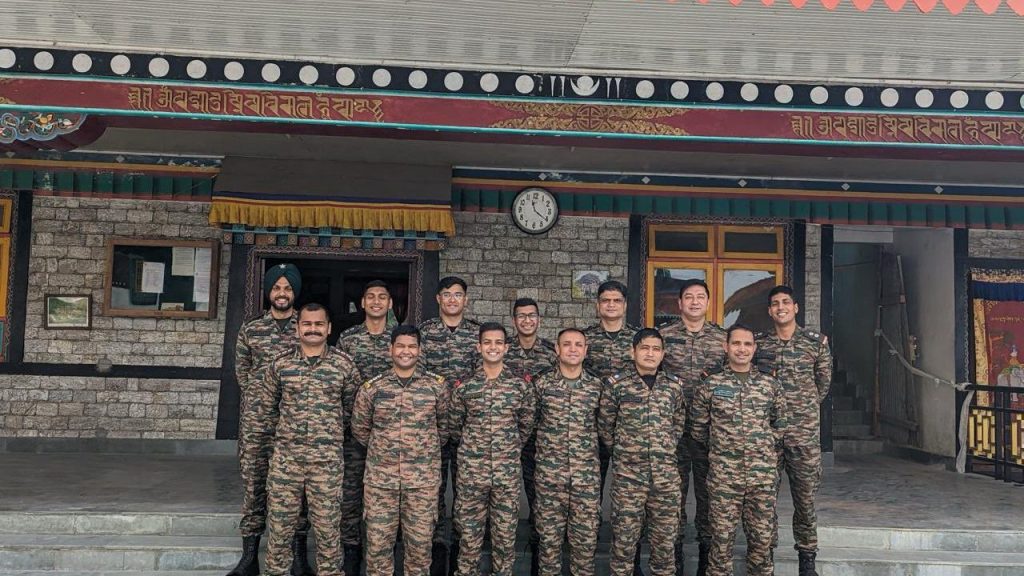
Through a series of comprehensive lectures, workshops, and field visits, officers were provided with valuable insights into various aspects of Tibetan history, language, and cultural practices.
The cadre curriculum encompassed diverse topics ranging from Tibetan history and philosophy to linguistics and topography, providing participants with a holistic understanding of the rich cultural heritage of Tibet.
Additionally, interactive sessions facilitated meaningful engagement and exchange of ideas, allowing officers to gain firsthand knowledge from eminent scholars and experts in the field of Tibetan studies.
The successful completion of the Sixth Tibetology Cadre reflects Trishakti Corps’ commitment to promoting cultural diplomacy and fostering mutual respect and understanding between different communities.
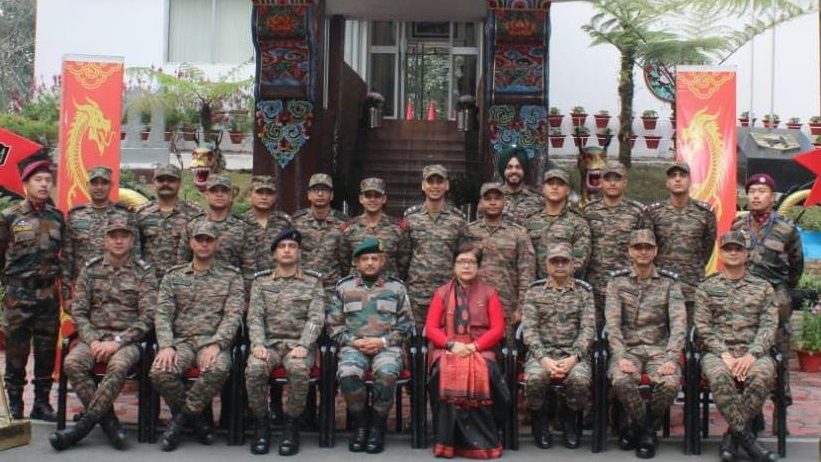
By equipping officers with a nuanced understanding of Tibetan culture and history, the Indian Army aims to facilitate effective communication and collaboration with Tibetan communities residing in the region.
Furthermore, the collaboration between Trishakti Corps, Sikkim University, and the Namgyal Institute of Tibetology exemplifies the importance of synergistic partnerships in advancing cultural literacy and promoting intercultural dialogue.
Through such initiatives, the Indian Army reaffirms its role not only as a guardian of national security but also as a proactive agent of cultural diplomacy and goodwill.
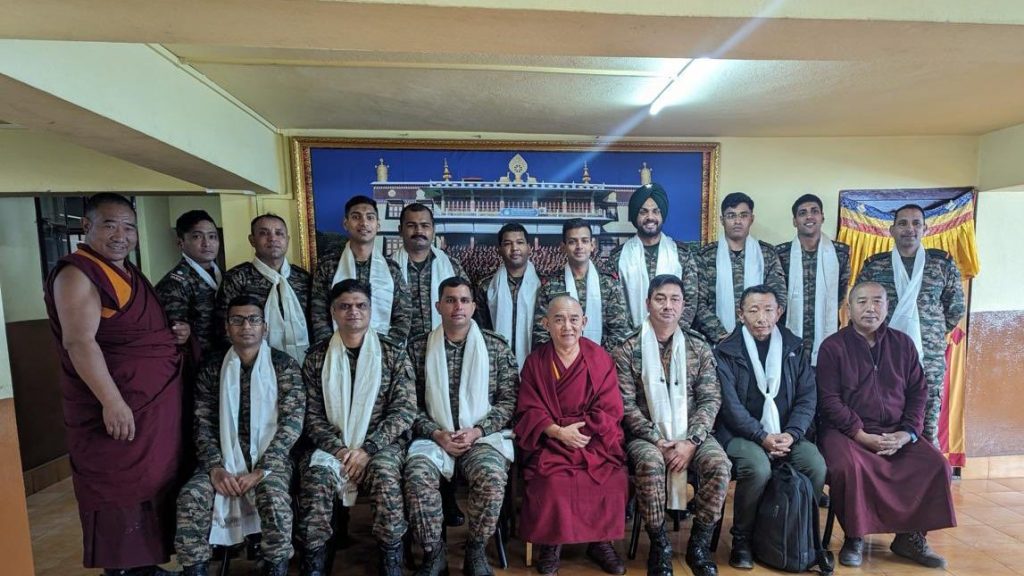
As the Sixth Tibetology Cadre concludes successfully, participants emerge with a deeper appreciation for the rich tapestry of Tibetan culture and heritage.
Armed with this newfound knowledge and understanding, officers are poised to engage more effectively with Tibetan communities and contribute meaningfully to cross-cultural exchanges and cooperation, thereby fostering greater harmony and unity in the region.

